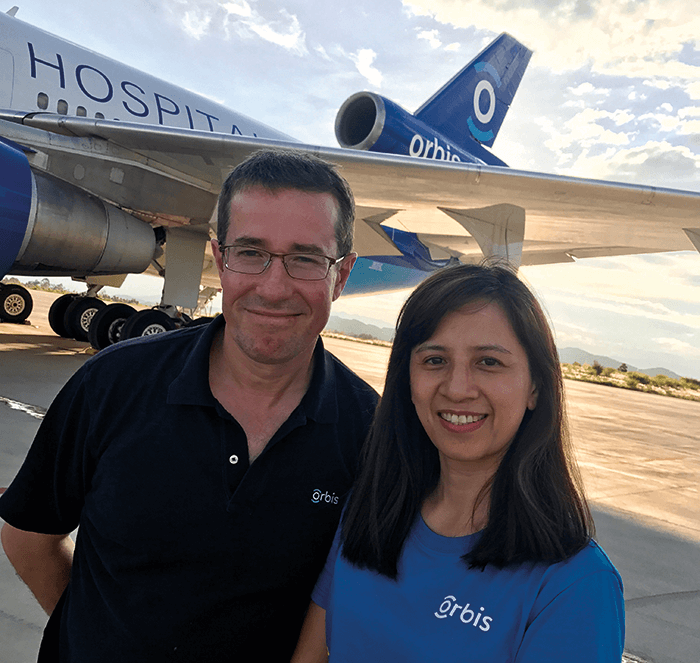
What drew you to medicine?
There was a tradition in Vietnamese families for one member to become a doctor to take care of everyone else. My parents wanted me to be a doctor, and even though it wasn’t necessarily what I thought of doing, I’m glad it chose me. As for anesthesia, when I applied to work at the newly opened hospital in Da Nang, they asked if wanted to be an anesthetist because they needed one. So I went to Ho Chi Min City to study anesthetics.How many pediatric anesthetists are at your hospital?
It’s just me! I work with seven anesthetic nurses who help me to organize the drugs and prepare the patients, but when I first started there was only me to deal with patients and very small babies. I was scared because I was alone, so I only worked on patients five years old or above. When Orbis visited our hospital in 2006, I had a great opportunity to learn from their volunteers. The Flying Eye Hospital has visited us four times now, and volunteers and Orbis staff such as Andrew have visited on their own. Thanks to these visits, I now have the confidence to help much younger patients, from one month of age. It has been so helpful and I have learned so much; what I can now do for patients is all thanks to Orbis. Before I could anesthetize younger children, they had to travel to Ho Chi Min City or Hanoi, which was not ideal because some parents didn’t have enough money, or the child’s condition was too complicated. Some parents couldn’t go with their child, which was sad. But now, we can care for younger children in the center of Vietnam and the highlands.How does it feel to now volunteer for Orbis?
When Orbis call and need me, I say “I’m ready!” I have worked with many other organizations, but I am so impressed with Orbis. They are the only organization I have worked with that focuses on training doctors and nurses, which is so important because the help for patients continues when the volunteers leave. They have made me strong and confident, and now I can work with them to help others in my position. I am so proud to be an Orbis volunteer – it is a dream come true. Since joining, I have volunteered in Vietnam and worked on two international programs in China and the Philippines. I could have never imagined that one day I would also be with Orbis; they are my family, my hospital is my family – we are all joined together.Andrew Choyce, staff anesthetist at King’s College Hospital, London, UK, and Orbis staff anesthetist
